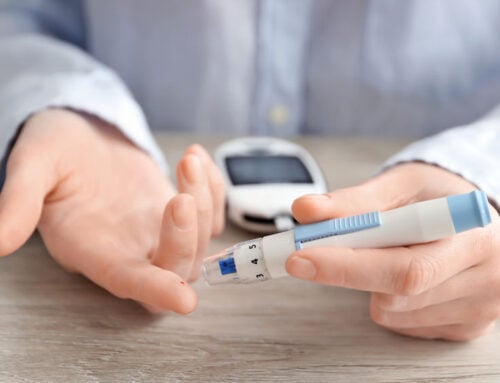Diabetes, Insulin, And You
A diabetes diagnosis can be scary and stressful. The chronic condition continues to impact the health of 1 in 10 American adults and is a leading cause of death. People with diabetes are often faced with the task of taking insulin. When someone has diabetes, the pancreas cannot create sufficient insulin or fails to do so correctly. Insulin, taken orally, via injection, or by pump, can provide the necessary hormone to manage sugar levels. In addition, there are often questions, concerns, and support patients need that go beyond searching online. For these reasons, a diabetes educator can be a trusted companion throughout the journey.

What is a diabetes educator?
Every athlete needs a coach to navigate and succeed at sports. A certified diabetes educator (CDE) is the diabetic patient’s coach to tackle this chronic condition. Diabetes educators deeply understand the disease, providing education, support, and resources to patients. Most CDEs are healthcare specialists like nurses, nurse practitioners, dietitians, and pharmacists. Each must undergo training and certification, ensuring that patients receive exceptional, consistent care.
Roles and responsibilities
Diabetes educators help patients with the condition’s day-to-day management and long-term challenges. Some common concerns from patients include diet, exercise, and medication. CDEs can help patients use the right strategies to reduce any complications. New patients can learn how to effectively check glucose levels and manage weight. Both parties come up with timelines and goals for a smooth transition. CDEs are also invaluable for life changes like pregnancy or the emotional challenges of diabetes.
Can a diabetes educator help with insulin?
Proper insulin use is the cornerstone of diabetes management. If done incorrectly, patients can suffer both short-term and long-term complications. A diabetes educator will have sessions with patients to properly show how to inject or use an insulin pump. These patients will also need help understanding the types of insulin and how each works with weight and lifestyle. Storage and disposal of insulin are also critical parts of the process. Educators can coach and provide support, so people with diabetes are comfortable.
Managing side effects and complications
Sometimes, insulin can lead to side effects, and diabetes can lead to complications. These side effects can impact the quality of life. Through consultations, educators can identify if the patient is missing or not adhering to the correct dosage. Over time, diabetes may lead to more severe complications. Navigating these complications while taking insulin can be a physical and emotional strain. Diabetes educators can help reduce the chances of severe illness.
Trust your CDE
When taken correctly, insulin helps people with diabetes effectively manage glucose levels. The journey to understand and administer insulin can be challenging at times. An educator can provide more insight and support than a general doctor alone. The CDE may even include family members to keep the patient happy yet accountable. Managing insulin alone is possible, but with a diabetes educator, the process is much easier.




